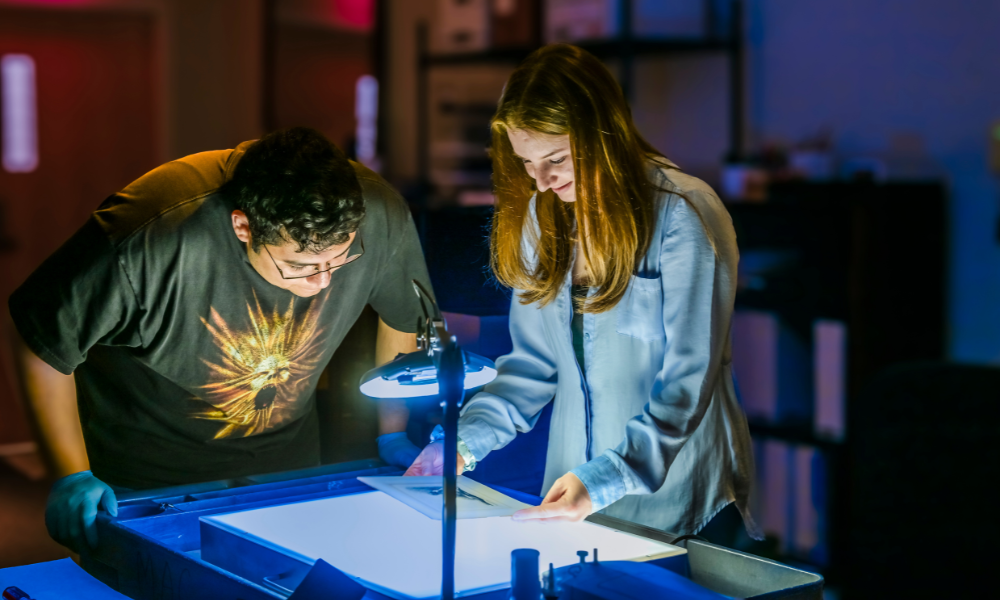The Madison Art Collection selected to partner with The American Alliance of Museums
College of Visual and Performing Arts
The American Alliance of Museums (AAM), the only organization representing the entire scope of the museum community, recently selected a new cohort of museums to participate in its 2024 Museum Assessment Program, including the Madison Art Collection at James Madison University.
Since its inception in 1981, the Museum Assessment Program (MAP) has helped more than 5,000 small and mid-sized museums of all types strengthen operations, plan for the future, and meet standards. With four types of assessments available, over 60% of AAM-accredited museums have participated in the program.
To participate in the Museum Assessment Program, museums choose from one of four institutional assessment types: Organizational, Collections Stewardship, Education & Interpretation, or Community & Audience Engagement. All four assessment types are grounded in AAM’s Core Standards; are inclusive of Diversity, Equity, Access, and Inclusion (DEAI) issues as they relate to the assessment focus; help museums look at both functional and strategic aspects of their operations; present focused learning modules and action plans for the museum to progress through; and include a peer-reviewed site visit. Over one-third of participating museums found the experience so valuable that they returned to participate another time in the Museum Assessment Program.
“This is a great step forward for the museum,” says Ginny Soenksen, Director of the Madison Art Collection. “Participating in MAP will give us time to consider how to thoughtfully and responsibly grow the collection. This is essential for us to fulfill our mission to provide both our community with the artistic and historic resources they need. We anticipate seeking accreditation through AAM in the near future, and this will lay a foundation of excellence to our collections stewardship.”
Associate Director Dr. Maria Harvey states, “The collection has historical strengths as well as gaps, and the Museum Assessment Program will help us examine these with a critical eye. The process will help us better advocate for the arts on and off campus and expand in a way that reflects the multicultural landscape of Harrisonburg.”
The benefits of participating in MAP are clear. Museums often gain clarity on an institutional roadmap or strategic plan, see positive impacts on their visitor experience or community response to their museum, grow in their ability to identify their strengths and challenges or gain valuable assistance with updating museum policy, successes in fundraising, and other benefits.
MAP is supported through a cooperative agreement between the Institute of Museum and Library Services and the American Alliance of Museums.
The Madison Art Collection (MAC) at James Madison University (JMU) is an encyclopedic, permanent collection of objects from a vast array of cultures, time periods, and mediums. Its mission is to serve the academic, local, and global community by researching, collecting, conserving, interpreting, and exhibiting tangible and intangible heritage. The public gallery space for the collection is the James and Gladys Kemp Lisanby Museum, which serves as a venue for dynamic, changing exhibitions. To lower barriers to the arts, the Lisanby Museum is free and open to all visitors.
For information on current exhibitions, visit the MAC’s website or social media accounts:
Madison Art Collection
About the American Alliance of Museums
The American Alliance of Museums (AAM) is the only organization representing the entire museum field, from art and history museums to science centers and zoos. Since 1906, we have been championing museums through advocacy and providing museum professionals with the resources, knowledge, inspiration, and connections they need to move the field forward. For more information on the American Alliance of Museums and the impact of museums, visit aam-us.org.
